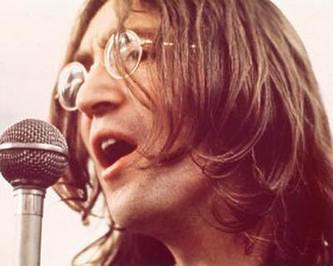- "Christianity will go. It will vanish and shrink. ... I don't know what will go first, rock 'n' roll or Christianity. We're more popular than Jesus now. Jesus was all right but his disciples were thick and ordinary. It's them twisting it that ruins it for me."
A firestorm of protest swelled from the southern U.S. Bible Belt area, as conservative groups publicly burned Beatles records and memorabilia. The Beatles looked at this in a wry way, by saying, "They've got to buy them first before they burn 'em."
Radio stations banned Beatles music and concert venues cancelled performances. Even the Vatican got involved with a public denunciation of Lennon's comments. On August 11, 1966, The Beatles held a press conference in Chicago, in order to address the growing furor.
- Lennon: "I suppose if I had said television was more popular than Jesus, I would have got away with it, but I just happened to be talking to a journalist friend (Maureen Cleave), and I used the words "Beatles" as a remote thing, not as what I think — as Beatles, as those other Beatles like other people see us. I just said "they" are having more influence on kids and things than anything else, including Jesus. But I said it in that way which is the wrong way."
- Lennon: "Well, originally I pointed out that fact in reference to England. That we meant more to kids than Jesus did, or religion at that time. I wasn't knocking it or putting it down. I was just saying it as a fact and it's true more for England than here. I'm not saying that we're better or greater, or comparing us with Jesus Christ as a person or God as a thing or whatever it is. I just said what I said and it was wrong. Or it was taken wrong. And now it's all this."
- Lennon: "I wasn't saying whatever they're saying I was saying. I'm sorry I said it really. I never meant it to be a lousy anti-religious thing. I apologise if that will make you happy. I still don't know quite what I've done. I've tried to tell you what I did do but if you want me to apologise, if that will make you happy, then OK, I'm sorry."

No comments:
Post a Comment